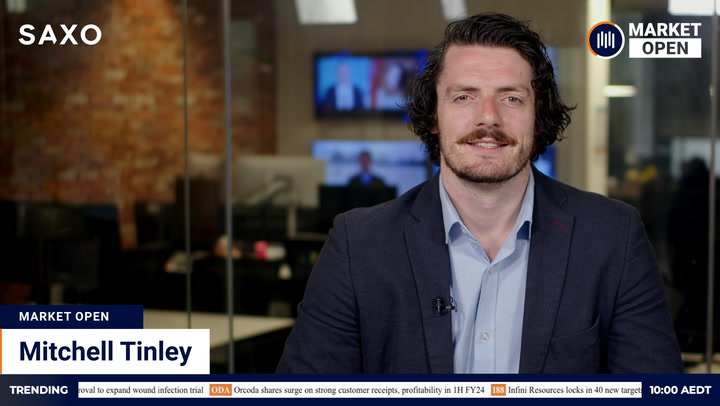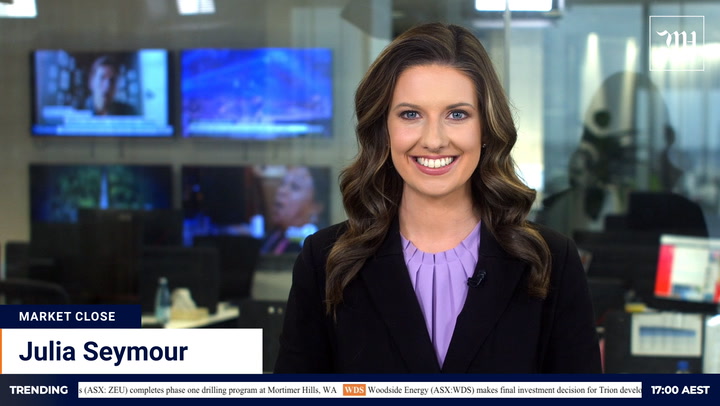The share market skidded almost 2.3 per cent to its weakest close in seven months as falling US equity futures compounded overnight losses on Wall Street.
The S&P/ASX 200 sank 166.6 points or 2.27 per cent. At 7176, the close was the lowest since June 1 2021.
The weekly loss of 218 points or 2.9 per cent was the heaviest since a 239-point dive in October 2020.
All 11 sectors declined. Falls ranged from 1.05 per cent for consumer staples up to 3.52 per cent for yesterday’s best performer, materials.
What moved the market
Australian traders sold out ahead of the weekend as deteriorating US futures threatened further pain tonight. S&P 500 futures slumped 33 points or 0.74 per cent after Treasury Secretary Janet Yellen promised action to contain soaring inflation. Investors interpreted that to mean higher rates and an end to the pandemic era of easy monetary policy.
Futures for the rate-sensitive Nasdaq Composite tumbled 198 points or 1.33 per cent. Overnight, the index shed 1.3 per cent after initially rising more than 2 per cent. The reversal continued a recent trend towards failed rallies that some traders interpret as a sea-change in the market mood.
“We’ve shifted from buy the dip, to sell the rip,” Frank Cappelleri, executive director and technical analyst at Instinet, told MarketWatch.
Here, the speculative end of the market and cyclicals copped the worst of the selling. The S&P/ASX Emerging Companies index slid 3.99 per cent. The Small Ordinaries dropped 2.91 per cent.
Yesterday’s five-month high in the materials sector looked like a false dawn after the sector faded 3.52 per cent. Energy, another recent pocket of strength, shed 3.01 per cent.
The counter-intuitive retreat in mining stocks came after iron ore prices hit four-month highs after China cut lending rates.
“Iron ore prices rallied to their highest level in four months on expectations of further monetary policy easing in China,” Kalkine Group CEO Kunal Sawhney said. “The world’s biggest buyer of metals, China, recently stepped up its policy easing efforts to spur a slowing economy by reducing a set of key policy rates & lending benchmarks.
“The country bolstered its monetary stimulus effort to primarily support the troubled property sector and drive economic growth in 2022. As China embraces monetary easing measures, the outlook for raw materials demand has improved while strengthening steel ingredient prices.”
Winners’ circle
Winners were rare as the bloodletting accelerated. Just 12 of 200 companies covered by the index advanced. Of those, just four rose more than 1 per cent.
The best of the bunch were building materials supplier Boral +2.09 per cent and gold miners Ramelius +2.9 per cent, Northern Star +1.03 per cent and Gold Road Resources +1.99 per cent.
IGA operator Metcash edged up 0.73 per cent. United Malt added 0.7 per cent.
At the speculative end of the market, explorer Carnavale Resources climbed 33.33 per cent to its highest since October 2020. Orion Minerals also bucked the trend, rising 20.75 per cent.
Skydiving operator xReality Group jumped 25.93 per cent on the appointment of John Diddams as chairman of the board.
Doghouse
BHP moved a step closer to centralising its operations back in Australia. Shareholders backed the board’s unification resolutions at meetings in the UK and Australia. A UK court is due to consider the proposed scheme of arrangement on January 25. The change from the current dual UK-Aus listing will make the miner the ASX’s largest listed company.
Shares in the Big Australian shed 4.81 per cent as investors took profits from yesterday’s mining surge. Rio Tinto retreated 4.14 per cent. Fortescue Metals reversed 2.1 per cent.
A sharp retreat in crude prices this morning dragged Woodside down 2.4 per cent. Santos shed 2.62 per cent.
Uranium miner Paladin gave up 10.98 per cent, rare earths miner Lynas 7.53 per cent and lithium miner Liontown 6.9 per cent.
Whitehaven Coal fell 6.1 per cent after downgrading its full-year production outlook by 5 per cent. The change reflected the impact of heavy rains on the east coast.
Analytics firm Nuix tanked 22.82 per cent to a new low on news first-half revenues were expected to be lower than the prior corresponding period. Pro forma earnings were anticipated to be less than half the return in 1H21.
Handed the toughest of days to debut, the newly-listed OrExplore Technologies shed half its market value. Today’s only IPO was dived 46 per cent to 13.5 cents.
Other markets
The mood on Asian markets was little brighter. The Asia Dow declined 1.55 per cent, China’s Shanghai Composite 0.84 per cent, Hong Kong’s Hang Seng 0.75 per cent and Japan’s Nikkei 1.48 per cent.
Oil reeled back from seven-year highs. Brent crude dived US$1.77 or 2 per cent to US$86.61 a barrel.
Gold also turned lower, easing 60 US cents or 0.03 per cent to US$1,8342 an ounce.
The dollar fell back below 72 US cents, down 0.36 per cent at 71.9 US cents as the Australian session concluded.








